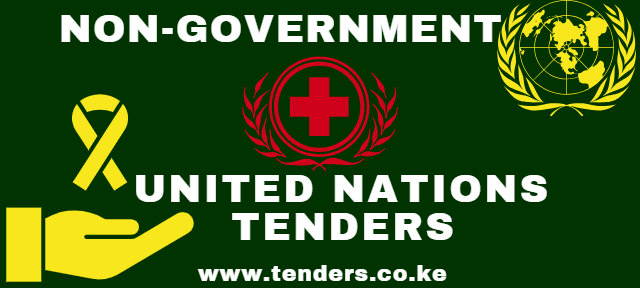Public sector bidding in Kenya offers lucrative opportunities for businesses, particularly in industries where you have expertise. Government tenders provide a chance for growth, but understanding how the public sector works is key to winning contracts. In this article, we will explore the essentials of public procurement, how to get started with government tenders, and important tips for success.
Key Terms in Public Sector Tendering
- Public Sector: This refers to all government-run organizations in Kenya, including ministries, state corporations, public hospitals, schools, universities, and county governments.
- Public Procurement: The process of purchasing goods, services, and works by the government.
- Procuring Entity: The organization purchasing goods or services.
- Public Contracts: Binding agreements between the procuring entity and suppliers.
- Access to Government Procurement Opportunities (AGPO): A program designed to support youth, women, and persons with disabilities (PWDs) in participating in public procurement.
- PPARB (Public Procurement Administrative Review Board): A body that handles tender disputes and reviews.
- PPRA (Public Procurement Regulatory Authority): An authority overseeing public procurement processes.
Myths About Public Sector Tendering
One common myth is that only large companies can win government contracts. In reality, the Public Procurement and Disposal Act reserves 30% of all public procurement spend for youth, women, and PWDs. These groups can apply for tenders through the AGPO program, providing an equal opportunity to access significant government contracts.
Key Considerations When Bidding for Public Contracts
1. Principles of Procurement
The procurement process follows the 5Rs principle: right quantity, right quality, right source, right place, and right price. Government agencies aim to procure goods and services cost-effectively and efficiently.
2. Your Rights in the Tendering Process
Every business has the right to participate in public procurement. Businesses eligible to bid include:
- Citizen contractors (owned by Kenyan citizens)
- Enterprises owned by youth, women, and PWDs
- Local contractors and Small and Medium Enterprises (SMEs)
- Joint ventures between local and foreign contractors
If you feel that the tendering process was unfair, you can challenge the decision by submitting a complaint to the PPARB within 14 days of receiving the award notification. Valid grounds for challenge include disqualification at the pre-qualification stage, bias, lack of transparency, and changes to evaluation criteria.
3. Competitive Pricing
To bid successfully, ensure that your pricing is competitive. The PPRA provides a Market Price Index that offers insight into the prevailing market rates, which can help in costing your bid accurately.
4. Procurement Cycle
The procurement process follows a cycle:
- Identification of needs
- Preparation of tender documents
- Submission of bids
- Evaluation (technical, financial, preliminary)
- Contract award
Understanding the procurement cycle will help you submit your bid at the right time and meet all the necessary criteria.
5. Trade Financing
Winning a tender may require financial backing to meet contract obligations. Many financial institutions offer trade finance, which you can use to finance your contract. You may also be asked to provide a Local Purchase Order (LPO), which can be used to obtain loans from banks.
6. Tender Security
Most government tenders require a tender security (bid bond) to ensure that bidders don’t withdraw mid-process. However, specialized groups (youth, women, PWDs) are exempt from providing bid bonds and can instead submit a tender securing declaration form.
Conclusion
Tendering in the public sector can be highly rewarding if you understand the process and follow the right steps. While it may take time to win your first bid, patience is crucial. By adhering to the procurement principles, submitting competitive bids, and utilizing available support programs like AGPO, you can secure government contracts and grow your business in Kenya.





